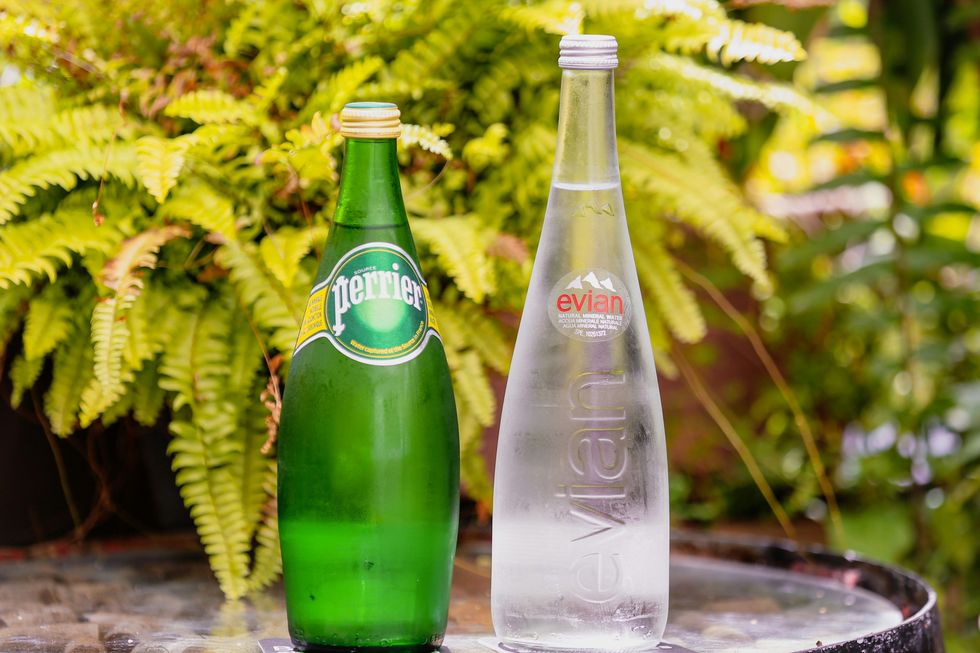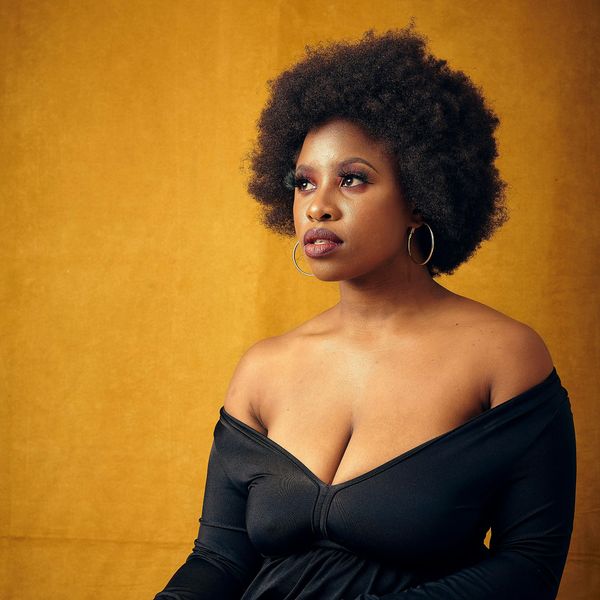
Recently, while having a conversation with a friend who is currently going through the PTSD of a divorce, one of the things that they kept saying over and over is, "I'm just so disappointed in myself." If you've read my content, even a little bit, then you know that I am pretty word-specific and so I gave that statement — one that is pretty common when you really stop to think about it — quite a bit of thought. Although I think a lot of people feel that being disappointed in themselves (or someone else) means that they feel bad about something that they said or done, the word actually means "to fail to fulfill the expectations or wishes of" and "to defeat the fulfillment of (hopes, plans, etc.); thwart; frustrate."
And while, on the surface, that might seem like I'm splitting hairs, when you factor in the lead quote, I'm actually…not. Sometimes, no matter how much you tried to make something work, it doesn't and that shouldn't result in you beating up yourself; it simply means you should learn how to manage your expectations better. For instance, when it comes to a relationship that's gone sour, if you really did give your all (be honest with yourself on that, by the way) and you expected things to last long-term, you've still got to factor in things like another person's free will, changes of circumstance and you possibly not being on the same page as your partner was/is.
See what I mean? While I'm not the person who lives by the motto "expect nothing and you'll never be disappointed" (because it sounds like a jaded or bitter person made that up), I am someone who thinks that we should not get so frustrated with ourselves — again, especially to the point that we beat ourselves up — when what we hoped for didn't exactly pan out. Instead, I think there are other far more productive and beneficial ways to utilize that energy. Here are seven of them.
1. Do Some Journaling
As a writer, I'm sure it's no shock to you that I'm a pretty big fan of journaling. Aside from the fact that it's a great way to plan out goals and improve your writing skills, journaling is proven to also help you to de-stress, get your thoughts together and track your progress. That said, sometimes, when we're disappointed about something and all we do is keep going over it again and again in our minds, it can be hard to make sense of the internal chaos — it can be challenging to separate feelings from facts and what you should "own" and what you shouldn't. That's why I definitely recommend that you do some journaling when you're in this kind of headspace because it can help you to vent and then see things from a much clearer perspective after you do.
Chile, there have been many things that I've been disappointed about yet because I put the date (and even the time) on my entries, it has been freeing like a mug to look back every few months to see how all things indeed worked together for the good. So yeah, journal about what has truly disappointed you before the year concludes. It's never (ever) for naught.
2. Have the “Hard” Conversations
Anyone who knows me (and only I would know that; check out "5 Signs You Really Know A Person") knows that ghosting is totally not my style. If anything, I'm someone who is going to communicate ad nauseam, just to make sure that folks are crystal clear about where I am coming from. For me, that means that whether we decide to work things out — personally or professionally — or we choose to part ways, you know exactly where I'm coming from and how I feel about the ultimate decision that has been made. This resolves confusion and where the confusion is lacking, peace can dwell.
Whether it's from counseling, observation, or personal experience, I honestly think that 8 times outta 10, ghosting either comes out of fear or cowardice. Because it's literally running from a situation and not dealing with it. To me, having the hard conversations is actually what makes it easier to feel like something is worth fighting for or that it's worth releasing because all of the feelings, on both sides, are out on the table.
For instance, I know someone who has a pretty dysfunctional relationship with her mother. Yet she vents to everyone and their grandma but her mom. As a direct result, over the years, nothing has really changed. She keeps telling me how disappointed she is yet she's in her 30s at this point and so I'm like, "You claim your mom is not meeting your expectations while assuming she should know what they are. That's your bad." Holding someone captive because of what you trumped up in your mind without giving them a heads up is no one's fault but your own. If you're that shook up — don't run. Deal. Ghosting doesn't accomplish that. Discussing does.
3. Forgive Yourself
I don't know what it is about this year, in particular, that caused so many people to either tweet or state that a definition of self-care is to forgive someone and never speak to them again. Every time that statement crosses my path, all I think is, "Gee, I hope folks can handle being forgiven in the way that they choose to forgive others." Because, if you've got even an ounce of humility in you, you know that the time is going to come, sooner than later, when you're going to need someone to forgive you — and the way you forgive has an uncanny way of boomeranging.
Besides, the more you learn about the purpose and benefits of forgiving other people (check out "Are You A 'Bad Forgiver'? Read This And See."), the more you want to do it. Trust me. You know, folks who claim that they don't believe in forgiving other people? Oftentimes, whether they realize it or not, they are putting out on front street, just how bad they are at extended mercy and grace — not to others but to themselves. And when you're so hard on you that you can't pardon yourself for when you did what humans do — mess up — that's a pretty miserable way to live; not just when it comes to you dealing with yourself but the people who try and walk out life with you as well. Self-forgiveness is necessary for this life. Be intentional as possible about doing it.
4. Come Up with a Personal Expectations-Related Mission Statement
Honey, I'm all about creating a mission statement. Again, because I'm a writer, I'm pretty sure that some of the reason is a little bit of an occupational hazard. At the same time, though, I like them because they remind me to be concise when it comes to figuring out an overall mission that I want to accomplish. And so, if you're someone who is either trying to shake a particular disappointment or protect yourself from becoming more disappointed in the future, it can never hurt to jot down a paragraph or two about what you will commit to, moving forward, when it comes to effectively managing your expectations — what you will do to make sure that they are realistic, how much you will invest into trying to manifest them and how you will evoke self-care if things don't go as planned.
Because here's the thing — while there are many factors that play a direct role in how expectations, wishes, and hopes come to be, when they don't go as you wish, with a mission statement in tow, you actually have more control over your disappointment than you might actually think. Because the more realistic you are, the more you're aware that you become of the fact that you can only control what you can control, and the more you're willing to love on yourself when you did your best and things went another way, the easier it will be to move on from said disappointment…so that you can thrive in another direction.
5. Don’t Wait until 1/1. (That’s a Joke.)
You wanna know an underrated sign of being a procrastinator? It's when you tell yourself that next year is when you'll make some real changes in your life? Lawd, let's all release the shackles of honestly thinking that something special happens between 12/31 and 1/1 because, really, when it's all said and done, it's just another day. And since you still have a few weeks before the New Year even starts, there's no time like the present to get a leg up on doing some things that will totally change the narrative, come this time next year.
It's actually with this point in mind that I penned, "Why Fall Is The Perfect Time To Prep For The New Year" for the site last year. Oh, and while you're at it, check out "12 Monthly Self-Love Themes That Will Make This Your Best Year Yet." Devoting the rest of this year to reflecting on all of the wishes unfulfilled that you had really doesn't make a lot of sense. However, shifting that time, effort, and energy into putting some short- and long-term goals together and then working on them, right here and right now? That is the kind of mentality that will put disappointment right in its place — far, far away from you.
6. Remember That You’ve Still Got Time
As a doula, it's not uncommon for a woman in her early 30s to talk to me about her ticking clock (check out "Tick Tock: How To Get Over The Fear Of Your Biological Clock"). Whenever that happens, something that I say, pretty much every time, is I've had several clients, well into their late 40s, who've had healthy and happy babies. My point? Disappointment will have you so distraught that you'll think that there is nothing past the moment that you're in when that couldn't be further from the truth.
So long as you've got breath in your body, you've got time. Time to start that business. Time to get into your dream relationship or job. Time to make that house or car purchase. Time to be a better friend to the current or even the next people who come into your life. Time to get into shape. Time to conceive a child. Time to love yourself more and better. A great remedy for disappointment is honoring your time by not wallowing in it. This is something else that I can personally attest to.
7. Focus on the Good
Author Mike Hawkins once said, "You don't get results by focusing on results. You get results by focusing on the actions that produce results." Author Napoleon Hill once said, "Focus on the possibilities for success, not the potential for failure." Another wise person once said, "When you're focused on the good, the good gets better." Focus on your actions. Focus on your possibilities. Focus on the good. Disappointment doesn't want you to do any of this yet when you push through its barriers and choose to do these things instead, you'll be absolutely amazed by how bigger your world is than your disappointment, how much you've got to be thankful for beyond your disappointment and how much you can still accomplish outside of your disappointment.
Disappointments? They come and go to us all. Yet the more intentional you are about giving it less time and energy (than usual), the easier it will be to get through and past them. You and your time are so precious so, sis, please make sure that you do.
Featured image by Getty Images
- 8 Ways To Be Kinder To Yourself, Kind To Yourself - xoNecole ... ›
- 8 Signs You're Self-Sabotaging Yourself - xoNecole: Women's ... ›
- When It Comes To Relational Disappointments—Do You Have ›
- The Act Of Surrender Connected Me To God Parts Of Myself ... ›
Your December 2025 Monthly Horoscopes Are All About Surrender & Alignment
December is about letting go. We end the year with the need for more peace, reflection, and rejuvenation, and that is exactly what December is providing for us. The Sun is in Sagittarius, and anything is possible. This is the month to believe in that and to know that the universe is supporting you. With a Supermoon in Gemini as we begin the month as well, we have an opportunity to gain the closure we have been looking for this year and to wrap up old projects, ideas, and communication breakthroughs.
This is the month to make your peace the priority and let go of trying to control the way the tides are turning. Trust in your new beginning, and give yourself time to prepare for it this month.
A big part of the clarity that is coming through this month is due to Neptune going direct in Pisces on December 10, after being retrograde here since July. With Neptune now direct, we are able to see our inspiration and creativity a little more clearly, providing the perfect energy for dreams and manifestation to be built upon. The smoke is clearing, and it’s up to you to decide what you want to do with this newfound clarity that this transit is bringing. Mercury also moves back into Sagittarius on December 11, which is great for communication and clarity, and the adventures you were trying to see through at the beginning of November come around for you again with greater purpose and support.
On December 15, Mars enters Capricorn until the end of January 2026, and this is the extra push we need to make important changes and to be on the path towards greater abundance, stability, and prosperity. Mars in Capricorn takes care of business, and we have extra energy at our disposal during this time to do so. This transit is an ideal time to focus on your career or financial goals for next year and to start putting some of these plans into motion now. A few days later, we have the New Moon of the month, which will be in Sagittarius on December 19, and this is the perfect New Moon to manifest.
The energy is high, magic is in the air, and it’s all about moving forward with the new beginnings that are inspiring you and bringing you joy to think about right now.
Capricorn Season officially begins on December 21, and this earth sign energy is how we heal, gain closure, and build new foundations in our world. With Venus also moving into a Capricorn a few days later, there is something about peace, prosperity, and security that we are gaining in life and in love as we close out the year, and this is what we need right now. This month is about reflecting on what was, letting go of old hurt, and renewing. December is an ending and a new beginning in one, and there is magic in this space to be created.
Read for your sun and rising sign below to see what December 2025 has in store for you.
 AriesKyra Jay for xoNecole
AriesKyra Jay for xoNecoleARIES
December is a full-circle moment for you, Aries. You are seeing the gifts in your world and have a lot of gratitude for the way things have come about for you as of late. There are culminations in your world that are providing you with more abundance, stability, and community, and you are exactly where you are meant to be this month. With the Sun in a fellow fire sign and in your 9th house of travel for most of the month, December is a good time to get out of your comfort zone, explore the world around you, and get your body moving.
Mars, your ruling planet, also makes a change and moves into Capricorn on December 15, which will fuel your inspiration and power in your career space. You are making a lot of professional progress as we close out the year; however, make sure to be more mindful of your competitive drive right now. The New Moon on December 19 is the perfect opportunity for you to create some new plans and goals when it comes to traveling, education, and where you want to gain some new inspiration in your world. Overall, this is a month of things coming together for you serendipitously.
 TaurusKyra Jay for xoNecole
TaurusKyra Jay for xoNecoleTAURUS
December is about trusting your intuition, Taurus. You have a lot on your mind this month, and it’s best to delegate, communicate, and allow yourself some relief by opening up to someone and not feeling like you have to hold everything in. As we begin the month, we have a Supermoon in Gemini happening in your house of income, and the plans and projects you have been building here come to fruition for you now. This is the time to gain clarity on your financial world and to take a look at what spending habits you want to let go of here as well.
With Venus in your 8th house of shared resources for most of the month, you are doing a cleanse on your commitments, partnerships, and business ventures. You are taking a look at what you want to dedicate yourself to in the future, and what commitments you may need to let go of now in order to be in the space you truly want to be, both financially and within some of your relationship dynamics. Before we end the month, we have a New Moon in this same area of your chart, and it’s time to look at the opportunities that are presenting themselves and to trust your internal guidance system to lead you forward.
 GeminiKyra Jay for xoNecole
GeminiKyra Jay for xoNecoleGEMINI
You are moving forward fearlessly this month, Gemini. December is your month of love, passion, and dignity, and you are owning the light that you shine. We begin the month with the last Supermoon of the year, happening in your sign, and you are stepping up to the plate. You are showing up, owning how much you have grown this year, and allowing yourself to heal while also acknowledging that you have done your best and you deserve to have fun in the midst of the changes you are creating.
Mercury, your ruling planet, is officially out of retrograde, and you can use this energy to the fullest potential now. With Mercury in your 7th house of love, it’s time to speak from the heart and to talk about the things that matter and that are inspiring you right now to your loved ones. You never know what kind of epiphanies you may have when you open up the conversation to others. Before the month ends, you have a New Moon in this same love area of your chart, and this New Moon is all about manifesting romance, commitment, and abundance in your world.
 CancerKyra Jay for xoNecole
CancerKyra Jay for xoNecoleCANCER
December is an opening for more love, more joy, and more freedom in your life, Cancer. You have come to a place where you hold so much gratitude in your heart for where you are today and where your heart is shining, and things come together for you with more ease right now. With the Sun in your 6th house of health, work, and daily routines for most of the month, you are getting your ducks in a row while also putting more energy and effort into taking care of yourself, your priorities, and your well-being. This month surprises you in many ways, and it’s because you are showing up.
Mars and Venus both move into your house of love, relationships, marriage, and abundance this month, and you are making strides in your love life. You have both of these opposing forces on your side and are being recognized for the love you are while also receiving the love you want. This month, overall, is about focusing more on the positives in your world and letting your heart have its joy. Before December comes to an end, there is a New Moon in Sagittarius, and this is the perfect opportunity to create the plans you want to see through next year, especially when it comes to your work life, colleagues, business ventures, and health.
 LeoKyra Jay for xoNecole
LeoKyra Jay for xoNecoleLEO
The scales of karma are balancing, and they are balancing in your favor this month, Leo. December is your month of truth, and of seeing it clearly in your world. The Sun is in your house of romance, pleasure, and happiness for most of the month, and it’s time to relax, be in the present moment, and allow what is meant to be, to be. With a Supermoon in your 11th house of manifestation as December begins, this is a powerful month for seeing your dreams come to fruition, and for feeling like the intentions you have set this year are finally here for you now.
Mars also moves into your 6th house mid-month, and this is the perfect energy to have to move into the new year. You have extra energy at your disposal right now and are feeling fearless with what is possible for you and your daily routine. Before the month ends, we also have a New Moon in a fellow fire sign, Sagittarius, and this is a breakthrough moment for you and your heart. December, overall, wants to show you how loved and supported you are and will be doing so in magical, unexpected, and concrete ways.
 VirgoKyra Jay for xoNecole
VirgoKyra Jay for xoNecoleVIRGO
December is a month of victory, Virgo. You are showing up and experiencing some new successes in your world that move you forward on your path in life. With a Supermoon in your 10th house of career as we begin the month, the effort and intentions you have made this year come into full bloom, and you are being recognized for who you are and the good work you have done. This month is all about showing up and allowing yourself to be seen and loved, knowing that you deserve the support and opportunities you are receiving.
Mars moves into Capricorn on December 15, which brings the passion and excitement into your love life, hobbies, and little pleasures in life that light you up. You want to have fun this month and are going to be walking into the new year with this fearless, happy, and spontaneous energy within you. Before the month ends, Venus also enters Capricorn, and in this same area of your chart, you have a lot to look forward to and believe in right now. Overall, December wants you to be happy and will be doing everything possible to make that happen for you. This is your month to shine, Virgo.
 LibraKyra Jay for xoNecole
LibraKyra Jay for xoNecoleLIBRA
December is a month of opportunity for you, Libra. New doors open, and you are financially making breakthroughs this month because of it. December begins with a Supermoon in your 9th house, and you are getting a clearer view of where you have been making strides in your life and how it has all brought you here to this present moment of freedom. This month is showing you what happens when you are fearless with your purpose and when you believe in yourself and what you are worthy of.
Moving further into December, Mars moves into your 4th house of home and family mid-month, and you are closing out the year in your safe spaces. You are spending more time with your loved ones and taking the time to quiet your mind and listen to what your heart has been telling you. Before the month ends, we have a New Moon in Sagittarius, happening in an area of your life that deals with communication. This is a great time for getting the answers you have been looking for and for feeling more clear-headed and confident about the decisions you are making as you move into the new year.
 ScorpioKyra Jay for xoNecole
ScorpioKyra Jay for xoNecoleSCORPIO
Patience is a virtue this month, Scorpio. December is all about remaining patient and vigilant with what you are creating in your world, and knowing that the universe has your back. It’s time to be reminded of the power of hope, and this month is an opening to greater clarity in your life. There is a lot of energy in your financial zones right now, and this is providing you with new opportunities and new insight; however, the speed at which things come about for you may feel daunting. Keep your head up and eyes focused on what you want and know that you are more than worthy of receiving it.
With Mercury in your 2nd house of income this month, December is a good time to plant new seeds and to think about where you want to be financially a month from now or even a year. This month is asking you to think bigger and to think more long-term so that you can set the appropriate plans into motion now. We also have a New Moon in your house of income before the month ends, and this is when you will see more of your dreams come to fruition in this area of your life, and have more opportunities to build. Overall, December will be teaching you a lot, Scorpio.
 SagittariusKyra Jay for xoNecole
SagittariusKyra Jay for xoNecoleSAGITTARIUS
Sagittarius Season is here, and there is a lot in store for you this month, Sag. December is all about what you are dedicating yourself to. It’s about setting your intentions and putting the work in to back up your dreams, and about getting things in order so that when the new beginnings come, you are ready for them. The Sun and Venus are in your sign for most of this month, and there are a lot of eyes on you right now. You have the potential to create a new beginning for yourself, and it’s time to invest in yourself, your love life, and your dreams.
Mercury moves into Sagittarius on December 11, and this is giving you another opportunity to see through some of the plans that you had initiated in November. Mercury was retrograde in your sign last month, and there may have been some disruptions to your vision and plans for the future, and now this energy is turning around for you. Before the month ends, we also have a New Moon in Sagittarius, and you are walking through new doors fearlessly. You are catching others by surprise by your growth this month, and you are thinking a lot about your purpose, future, and plans for the new year.
 CapricornKyra Jay for xoNecole
CapricornKyra Jay for xoNecoleCAPRICORN
December is all about the vision, Capricorn. You are moving through a lot of changes and transformations this month, yet they are giving you a chance at a new beginning in the process. You are focused more on the future and what goals you want to manifest for yourself right now, and are ready to let go of what hasn’t been working for you. With the Sun in your 12th house of closure for most of December, this is your time for healing, but remember, healing doesn’t have to be isolating or boring; you can thrive while you renew, and you are this month.
Mid-month, the excitement picks up for you, and you are feeling more energized than you have in a while. Mars moves into Capricorn until the end of January 2026, and you are being proactive with your goals, intentions, and passions. You are a force to be reckoned with this month, and you are making things happen for yourself with confidence. Capricorn Season officially begins on December 21 this year, and this is definitely speeding up your healing process. You are breaking free from what was, and with Venus also moving into Capricorn before the month ends, you are leaving this year in high spirits and with love opening a new door for you.
 AquariusKyra Jay for xoNecole
AquariusKyra Jay for xoNecoleAQUARIUS
December is all about community, creativity, and manifestation, Aquarius. This is the month to work together with others to help bring your dreams to life. You are in a space of inspiration, empowerment, and beauty, and are creating more of this energy around you and in your world. Look out for what support comes your way this month and know that you don’t have to do everything alone to succeed. With the Sun in your 11th house of manifestation and friendship, your intentions are coming to fruition, and it’s time to celebrate with the people you love and to own how far you have come this year.
On December 19, we have a New Moon in Sagittarius, lighting up your life in all of the best ways possible. This is your New Moon of freedom, victory, and magic, and you are seeing new beginnings appear that you were once just hoping for. Before the month comes to an end, Venus moves into your 12th house of closure, and after an active and successful month, you are ready to relax, heal, and give your heart some of the attention it has been asking for. You are moving into the new year with the need to release and renew what hasn’t been working in your relationships, and you are finally ready to.
 PiscesKyra Jay for xoNecole
PiscesKyra Jay for xoNecolePISCES
December is a big month for you, Pisces. You are making some huge accomplishments this month, and are feeling like everything you have been through this year has been worth it for these moments that are coming to fruition for you now. The Sun is in your 10th house of career and reputation for most of the month, and this is where a lot of your focus is right now. You are claiming your successes and putting yourself out there in ways that not only serve you, but that inspire others as well.
Neptune officially goes direct on December 10, after being retrograde in your sign since July, and you are finally seeing things a little more clearly. You are feeling renewed inspiration and passion in your life, and your intuition is your strongest asset right now. Before December comes to an end, we also have a New Moon in your 10th house of career, and what happens now not only changes things for you in the present, but it also opens new doors and what is possible for you in the new year as well. Overall, you are on top of your game this month and are owning the joy and empowerment you feel.
Featured image by Kyra Jay for xoNecole
I wish I enjoyed drinking plain ole’ water. I don’t, though, and, at this point, I doubt that I ever will. It’s not something that I’m proud of or anything, but like I’ve said in other articles on this platform, to me, water is so damn boring; it’s literally like drinking “wet air.”
That doesn’t mean I don’t accept that it’s a “necessary evil” being that we all are made up of so much water and being dehydrated (which is something that a lot of us are) can cause so many health-related issues, including blurred vision, muscle cramps, dried skin, fatigue and even moodiness.
That’s why, over the years, I’ve been intentional about figuring out ways to get more agua into my body without feeling like it’s a chore or something to dread. And now, I want to pass some of those hacks on to you, just in case you happen to totally relate to where I am coming from.
If something that you want to do more of right through here is get extra H2O into your system, here are 10 tips that can absolutely help to make that possible.

Unsplash
1. Invest in a Fun Water Bottle
There’s a far greater chance that you are going to drink water if you have a water bottle around you. So, cop yourself a cute one — one that will help you to stay motivated. A tumbler that I purchased some time back, just because I thought it was cute as hell, simply says, “Make Better Coochie Decisions” (amen?-LOL). Honestly, that doesn’t just have to apply to sex but how you treat your vagina overall — and that includes making sure that “she” has all of the fluids that she needs.
2. Try Some Sparkling Water or Mineral Water
At this point, I should take stock in Waterloo. It currently is my favorite kind of sparkling water and it has definitely made getting more water into my system easier to do. That’s because I will add some limes to it or a bit of fruit juice to it and that makes drinking water less “meh” for me. Another type of water that has bubbles in it is sparkling mineral water; it can also be beneficial since it contains magnesium, potassium and calcium.

Unsplash
3. Go Halfsies with Your Other Drinks of Choice
Speaking of making some all-natural soda (which is basically what happens when you add juice to sparkling water or sparkling mineral water), you can find yourself drinking more water while consuming less calories if you fill up your glass with half of your favorite fruit juice and half of some sparkling water. More times than not, the juice doesn’t even taste watered down. Try it before you doubt me.
4. Collect Some Infused Water Recipes
I’m forever gonna be a fan of infused water; that’s because it’s water that has fresh fruits and/or veggies in them — and it doesn’t get any healthier than that. Plus, infused water tends to take on the taste of whatever fruits or vegetables that you put into the water (if you let the stuff soak for a couple of hours), so that the water doesn’t taste so boring and bland. Wanna try a few recipes? You can check out some here and here.

Unsplash
5. Make Slushies Instead of Smoothies
Are you someone who enjoys consuming smoothies? Well, if you want to get more water into your system, how about going with a slushie instead? Although it is true that some smoothies have water as a base, the most bomb ones use milk (or a milk alternative) or yogurt. Slushies, on the other hand, typically go with crushed ice (which is frozen water) instead. That said, some (pardon the pun) cool slushy recipes can be found here, here and here.
6. Use Water As Your “Drink Chaser”
Another great thing about water is it can help to keep you from overeating; it does that by causing you to feel full if you drink it while you are eating. And speaking of calorie-counting, if you don’t want to give up your favorite drink at mealtime, one way to keep from downing 2-3 glasses of it at a time is to use water as your “chaser.” What I mean by that is, after enjoying a glass of your favorite beverage, “chase it down” with a glass of water. That should satisfy your want for what you want without overdoing it.

Unsplash
7. Eat Foods That Are High in Water Content
Another way to get more water into your body is to eat foods that have a ton of water in them. Some that top the list include lettuce (96 percent); cucumber (95 percent); zucchini (95 percent); celery (95 percent); strawberries (91 percent); cantaloupe (90 percent), and peaches (89 percent).
8. Have a Ball with Your Ice Cubes
Ice cubes are frozen water, right? That’s why most of us prefer to enjoy our drinks before the ice cubes melt because melted cubes water down whatever it is that we are consuming. And so, for this very reason, add more ice cubes to your drinks — and have fun making them. You can add juice, fruit and/or mint leaves while making your cubes. That way, they are aesthetically-pleasing; plus, they will also add more flavor to your water once the ice cubes actually melt.

Unsplash
9. Add Some Non-Alcohol Cordial to Your Water
If you’re fine with just having a tad of taste in your water, why not add a bit of cordial to it? Cordial is simply a type of tonic, syrup or sweetener (that can contain alcohol or not) that can help to make your water more…interesting. Some alcohol-based cordials can be found here. Some non-alcoholic recipes are located here.
10. Technically, Herbal Tea Counts
Tea is always gonna be my thing. That’s why I’ve penned articles on it for the site like “10 Different Ways Herbal Teas Can Fit Into Your Beauty Regimen”, “10 'Uncommon' Teas You Should Add To Your Stash (& Why)” and “I've Got 10 Teas That Will Help You To Age (Even More) Gracefully” And y’all, if you want to get a lot more water into your system yet a tall glass of water only isn’t your — pardon the pun — cup of tea, make some iced herbal tea instead.
It’s basically water with some herbs tossed in and, if you add some honey or raw organic coconut palm sugar to it, it will be a really sweet treat that will still be extremely hydrating (and very healthy) for you.
Water that is a bit more exciting for you…now. LOL.
Drink up!
Let’s make things inbox official! Sign up for the xoNecole newsletter for love, wellness, career, and exclusive content delivered straight to your inbox.
Featured image by Unsplash









